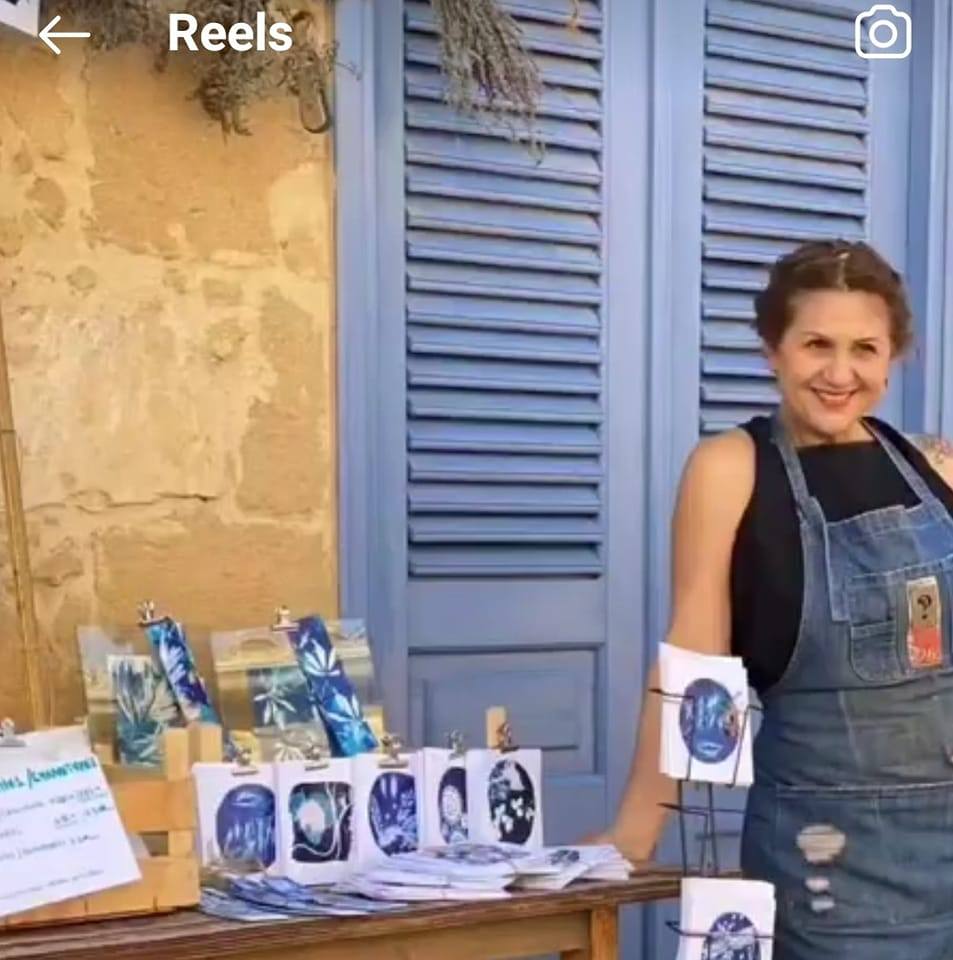The Cyanotype Workshops are an initiative with a dual scope: to maintain and preserve the art and technique of cyanotypes and use the artistic activity as a tool to promote cultural and social integration, as well as social bonding and collaboration.
Cyanotype is a photographic printing process that dates back to the 19th century. It involves coating a surface, usually paper or fabric, with a light-sensitive mixture of chemicals containing iron compounds. When exposed to ultraviolet light, the iron compounds react and create a distinctive cyan-blue color. The process is simple yet versatile, making it a popular choice for creating artistic blue-toned images, particularly in alternative and historical photography.
The workshops are taking place all over Cyprus and are a very succesful tool for collaboration, artistic expression, community building and bonding, overcoming the language barrier and other cultural bias or prejudice.
The Katerina Procopiou – Cyanotype Workshops offer the opportunity to become familiarized with the Cyanotype technique, express one’s self in an artistic manner, collaborate and become part of a community of people willing to explore not only the artistic and cultural side, but also the social and inclusion aspect as well. The resources needed are not particularly expensive or demanding, making cyanotype a technique suitable for all ages and levels of skill, while it also doesnt require linguistic capacity or special training, and can therefore be implemented in different indoor and outdoor settings.
The success of the Cyanotype Workshops as a tool for social integration and social inclusion can be attributed to a variety of factors. The choice of the method was ideal as it doesn’t require expensive materials nor does it need extensive training. The delivery of the training can take place in a variety of settings (both indoors and outdoors) and it is being delivered all over the island, which allows for a diverse range of participants to attend and collaborate. In addition, the workshop was also endorsed by the Cypriot government, and it became part of a cultural set of initiatives to revive rural areas and to engage local communities, visitors, and marginalized groups. In addition, local hosting communities embraced and supported the activities and more and more localities expressed an interest to host similar cyanotype workshops.
The blend of artistic expression, collaboration, the diverse participants, and the warm welcome of the local communities, proved that social inclusion can be promoted and achieved through a variety of innovative -yet traditional- techniques which can be funded either through governmental funds or through other means such as EU projects.

For the success of similar activities, it is crucial to engage different stakeholders and the local communities as well. It is also advisable to trace back and explain the techniques and methods used and to relate them to the history and cultural context of hosts and participants. An additional element that contributed to the success of the initiative was the ability to have a physical reminder – token of their inclusion in the project (examples can be seen in the below photos). These tokens are also a means to express the internal workings and feelings of participants and communicate in a non-verbal, not language restricted manner.

Katerina would like to expand the range and frequency of the workshops and potentially explore adapting the technique and methods used to accommodate additional marginalized and underprivileged groups and work further with people with mental and physical disabilities.
Get to know other stories from across Europe in the section on Case studies.

